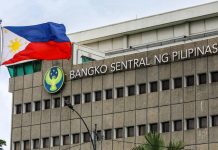MONETARY authorities remain confident that inflation will return to the government’s 2 percent to 4 percent target band in the last quarter of 2023 despite ending its six-month deceleration in August when it rose to 5.3 percent.
The Philippine Statistics Authority (PSA) on Tuesday, Sept. 5, traced the uptick in the rate of price increases in August from 4.7 percent in the previous month to higher annual hikes in food and transportation costs.
Despite the reversal in the slowdown of domestic inflation rate, the Bangko Sentral ng Pilipinas (BSP), in a statement on Tuesday, said last month’s inflation figure is within its forecast range of 4.8 percent to 5.6 percent.
It expects inflation to remain high in the next few months “due to continued impact of supply shocks on food prices and the rise in global oil prices.”
“Nonetheless, inflation is still projected to decelerate back to within the inflation target by Q4 (fourth quarter) 2023,” it added.
To date, the average headline inflation stood at 6.6 percent.
Meanwhile, core inflation, which excludes volatile food and oil items, posted a lower rate in August at 6.1 percent from 6.7 percent in July, resulting in an average of 7.4 percent.
“Balance of risks to the inflation outlook continues to lean towards the upside owing to the potential impact of additional transport fare increases, higher-than-expected minimum wage adjustments in other regions, persistent supply constraints for key food items, El Niño weather conditions, and possible knock-on effects of higher toll rates on prices of key agricultural items,” the BSP said.
However, these factors are expected to be countered by the weaker-than-expected global economic recovery.
With these developments, the central bank said it “stands ready to adjust the monetary policy stance as necessary to prevent the further broadening of price pressures, as well as the emergence of additional second-order effects in view of the persistent upside risks to the inflation outlook.”
“The BSP also continues to support the timely and effective implementation of non-monetary government measures to mitigate the impact of persistent supply-side pressures on inflation,” it added. (PNA)/PN



